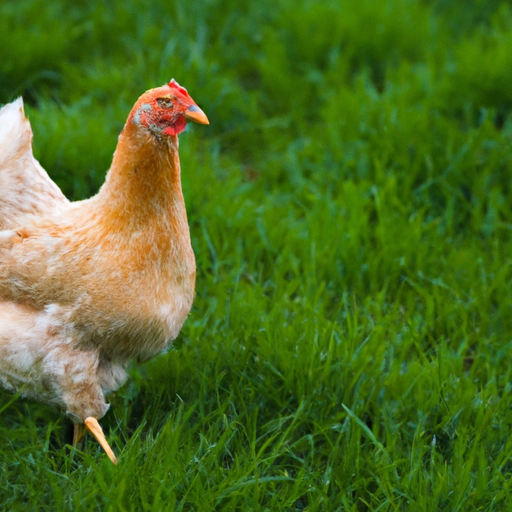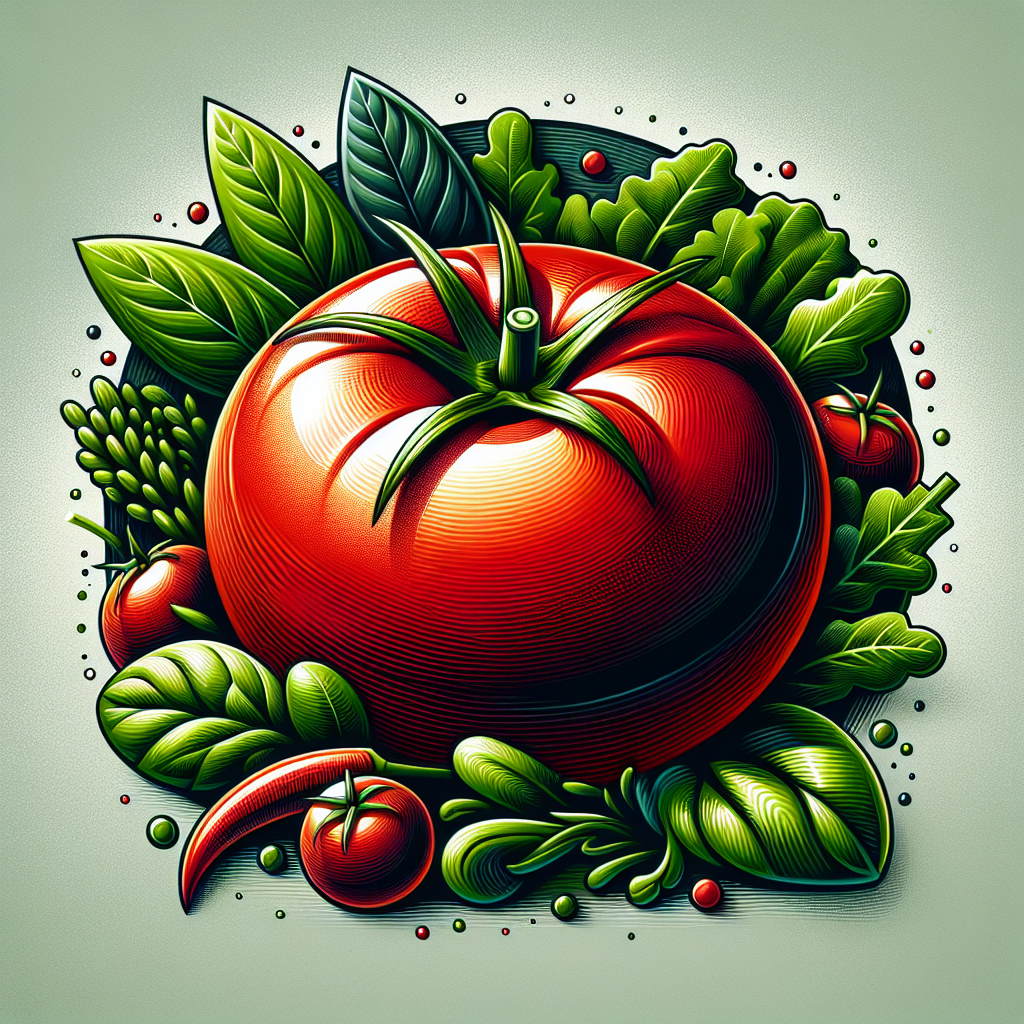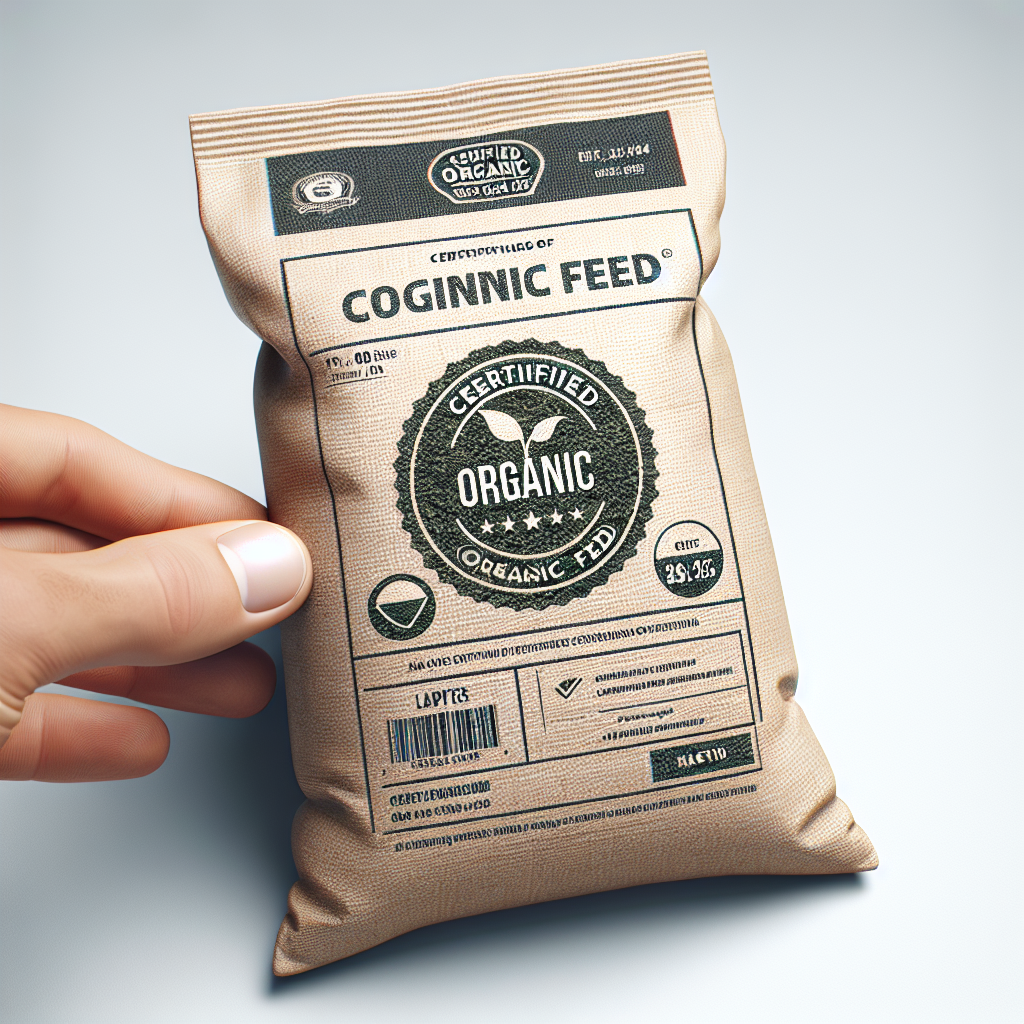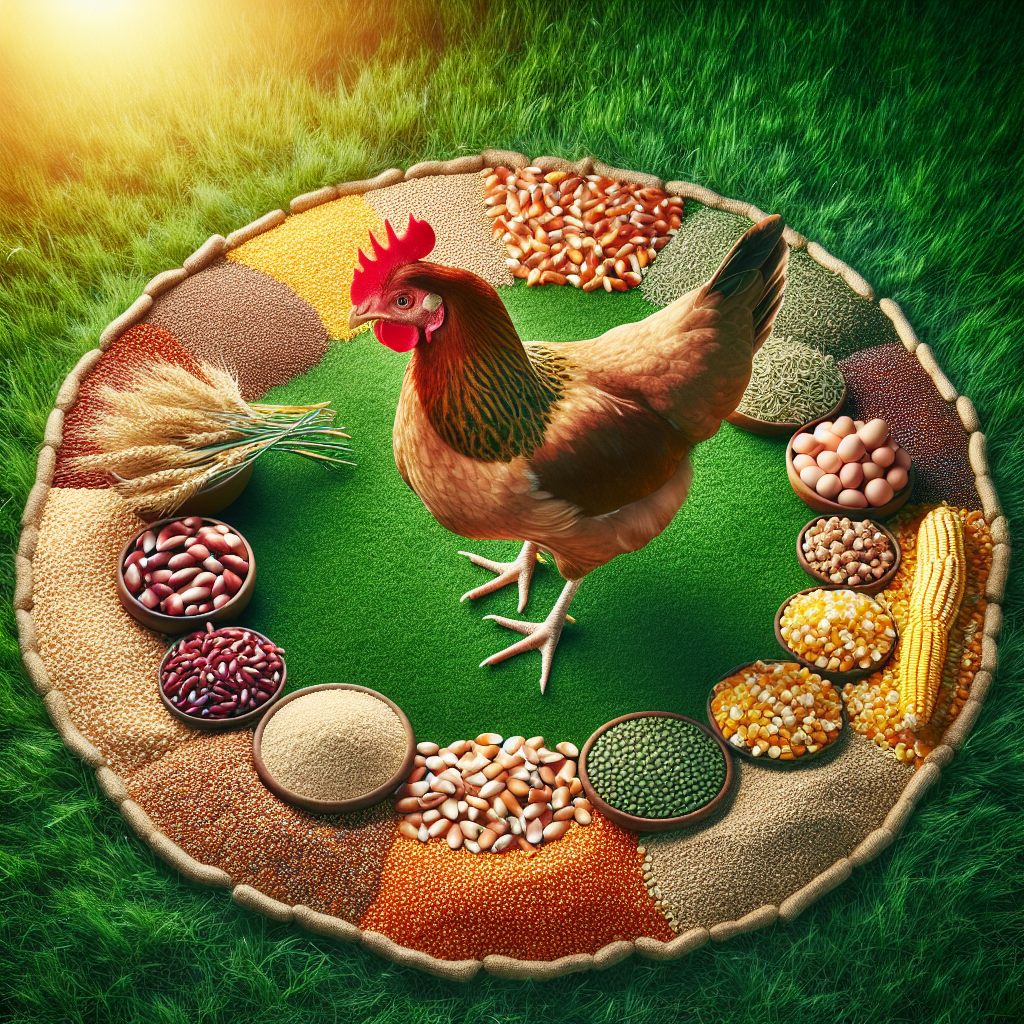Imagine a world where chickens can eat like queens and kings, feasting on organic treats that not only tickle their taste buds but also enhance their health. As poultry enthusiasts continue to raise concerns about the impact of conventional feeds on our feathered friends, the question arises: are there proven health benefits for chickens consuming organic feeds? In this article, we will explore the potential advantages of an organic diet for our clucky companions, and whether it truly makes a difference in their overall well-being. So, grab your favorite poultry magazine and let’s embark on this adventure to uncover the truth behind organic chicken chow!
Overview of Organic Feeds
Definition of Organic Feeds
Organic feeds refer to animal feed that is produced using organic farming methods. These methods exclude the use of synthetic pesticides, genetically modified organisms (GMOs), and chemical fertilizer. Instead, organic feeds are made from natural and sustainably sourced ingredients, ensuring that the feed is free from harmful additives and contaminants.
Composition of Organic Feeds
Organic feeds are composed of a carefully selected blend of organic ingredients. These ingredients often include grains, legumes, grasses, and other natural plant-based materials. Organic feeds may also contain minerals and vitamins to ensure animals receive a well-balanced diet. The composition of organic feeds is designed to provide optimal nutrition for animals while promoting their overall health and well-being.
Nutritional Benefits
Higher Nutrient Content
One of the key benefits of organic feeds is their higher nutrient content compared to conventional feeds. Organic farming emphasizes soil health and fertility, which translates into plants that are rich in essential vitamins, minerals, and antioxidants. When animals consume organic feeds, they benefit from these increased nutrient levels, leading to improved overall health and vitality.
Lower Levels of Chemical Residue
Conventional feeds often contain residues of synthetic pesticides, herbicides, and fertilizers, which can have detrimental effects on animal health. In contrast, organic feeds are produced without the use of these chemicals, resulting in lower levels of chemical residue in the animals’ bodies. By choosing organic feeds, you can reduce the potential risks associated with consuming feed containing harmful chemical compounds.
Greater Omega-3 Fatty Acid Content
Organic feeds also tend to have higher levels of omega-3 fatty acids, which are essential for animals’ health. Omega-3 fatty acids have been linked to numerous health benefits, including improved heart health, reduced inflammation, and enhanced brain function. By incorporating organic feeds into an animal’s diet, you can ensure they receive an adequate supply of these beneficial fatty acids.
Antioxidant Properties
Increased Antioxidant Levels
Antioxidants are compounds that help protect the body against oxidative stress and damage caused by harmful free radicals. Organic feeds are known to have higher levels of antioxidants compared to conventional feeds. These antioxidants, which include vitamins such as vitamin E and beta-carotene, provide important health benefits by neutralizing free radicals, reducing inflammation, and supporting the immune system.
Protection Against Oxidative Stress
Oxidative stress occurs when there is an imbalance between the production of free radicals and the body’s ability to detoxify them. This can lead to cellular damage and various health problems. By consuming organic feeds, animals can benefit from the increased antioxidant content, which helps protect their cells against oxidative stress. This can result in improved overall health and resistance to diseases.
Gut Health
Improved Digestive System
Organic feeds promote improved digestive health in animals, leading to better nutrient absorption and utilization. The natural and organic ingredients used in organic feeds are easier for animals to digest, reducing the risk of digestive issues such as bloating, diarrhea, and indigestion. A healthy digestive system not only enhances nutrient uptake but also contributes to overall well-being and vitality.
Higher Beneficial Bacteria Count
A balanced and diverse gut microbiota is essential for optimal health in animals. Organic feeds, with their focus on natural and sustainable ingredients, provide a favorable environment for beneficial bacteria to flourish in the gut. These beneficial bacteria aid in digestion, enhance nutrient absorption, and support a strong immune system. By consuming organic feeds, animals can maintain a healthy balance of gut bacteria, leading to improved overall health.
Reduced Risk of Intestinal Diseases
The use of organic feeds has been associated with a reduced risk of intestinal diseases in animals. This can be attributed to the higher quality and nutrient content of organic feeds, which support a healthy gut environment. The absence of synthetic additives and chemicals in organic feeds helps reduce the risk of gastrointestinal disorders and other intestinal health issues. By feeding animals organic feeds, you can help safeguard their digestive health and minimize the occurrence of intestinal diseases.
Immune System Boost
Enhanced Immune Response
Organic feeds have been found to enhance the immune response in animals. The higher nutrient content and antioxidant levels in organic feeds support the proper functioning of the immune system, helping animals better defend against pathogens and diseases. By consuming organic feeds, animals can develop a stronger immune system, leading to improved overall health and reduced susceptibility to infections.
Stronger Defense Against Pathogens
The natural ingredients and lack of harmful chemicals in organic feeds contribute to a stronger defense against pathogens. Animals consuming organic feeds are less likely to be exposed to harmful residues and contaminants that can compromise their immune system. Additionally, the higher levels of antioxidants found in organic feeds provide further protection against oxidative stress, strengthening the immune response and reducing the impact of pathogens on animal health.
Reduced Antibiotic Usage
Lower Need for Antibiotics
One notable benefit of organic feeds is the reduced need for antibiotic usage in animal production. Organic farming practices prioritize preventive measures and natural alternatives to maintain animal health. The higher nutrient content and improved immune system resulting from consuming organic feeds help reduce the incidence of diseases, minimizing the need for antibiotics as a treatment. This reduction in antibiotic usage has important implications for both animal health and human health.
Reduced Antibiotic Resistance
Overuse of antibiotics in animal production has contributed to the rise of antibiotic-resistant bacteria, posing a significant threat to both animals and humans. By using organic feeds and minimizing antibiotic usage, the risk of antibiotic resistance development is significantly reduced. Choosing organic feeds promotes sustainable and responsible farming practices that prioritize the long-term health of animals and the environment.
Meat Quality
Improvement in Flavor and Texture
Animals fed organic feeds often yield meat of superior quality in terms of flavor and texture. The natural and organic ingredients in organic feeds contribute to the development of meat with enhanced taste and tenderness. Organic farming practices also prioritize animal welfare and stress-reducing measures, which can further improve the quality of meat produced. By consuming meat from animals that have been fed organic feeds, you can enjoy a heightened culinary experience.
Lower Levels of Harmful Substances
Conventional feeds can contain harmful substances such as pesticide residues and chemical additives, which may find their way into meat products. Organic feeds, produced without the use of these substances, result in meat with lower levels of harmful compounds. By opting for meat from animals fed organic feeds, you can reduce your exposure to these potentially harmful substances and enjoy meat that is both healthier and safer to consume.
Environmental Impact
Sustainable Farming Practices
The production of organic feeds involves sustainable farming practices that prioritize environmental conservation. Organic farming minimizes the use of synthetic inputs, such as chemical fertilizers and pesticides, which can have negative impacts on soil quality and biodiversity. By promoting a more sustainable and regenerative approach to agriculture, organic feeds help preserve natural resources, protect ecosystems, and maintain the long-term health of our planet.
Reduced Pollution and Soil Contamination
Conventional farming methods often result in pollution and soil contamination due to the use of synthetic chemicals. Organic feeds, being produced without the use of these chemicals, help reduce pollution and soil contamination in agricultural systems. This is crucial for protecting water sources, maintaining soil fertility, and promoting a healthy environment. By choosing organic feeds, you are supporting a more sustainable and environmentally friendly approach to farming.
Consumer Perception
Preference for Organic Products
Consumers increasingly prefer organic products due to their perceived health benefits and safety. This preference extends to animal products derived from animals fed organic feeds. By choosing organic feeds for animals, farmers can meet consumer demands and tap into the growing market for organic products. You can trust that animals consuming organic feeds have been raised in a manner that aligns with your values and desire for healthier, more sustainable food options.
Perceived Health and Safety Benefits
Consumers perceive organic products, including those derived from animals fed organic feeds, as healthier and safer choices. The absence of synthetic chemicals and the focus on natural ingredients in organic feeds contribute to this perception. Furthermore, the increased nutrient content and improved welfare of animals consuming organic feeds add to the perceived health benefits. By opting for products derived from animals fed organic feeds, you can enjoy the peace of mind that comes with making a healthier and safer food choice.
Cost Considerations
Higher Production Costs
Organic feeds often come with higher production costs compared to conventional feeds. Organic farming practices require more labor-intensive methods, stricter regulations, and the use of premium natural ingredients. These factors contribute to the increased cost of producing organic feeds. However, it is important to consider the long-term benefits of organic feeds in terms of animal health, environmental sustainability, and consumer demand when evaluating the cost-effectiveness of using organic feeds.
Market Demand and Pricing
The growing market demand for organic products, including animal products, has influenced the pricing of organic feeds. Higher production costs, coupled with increasing consumer demand, have led to higher prices for organic feeds compared to conventional feeds. However, as more farmers transition to organic farming practices and economies of scale are realized, it is expected that the prices of organic feeds will become more competitive. Ultimately, the market demand for organic products and the associated price premium can offset the higher costs of using organic feeds.
In conclusion, there are numerous proven health benefits for animals consuming organic feeds. From improved overall nutrition and higher antioxidant levels to enhanced gut health and immune system function, organic feeds provide a range of advantages for animals. Additionally, the use of organic feeds reduces the need for antibiotics, improves meat quality, and promotes sustainable farming practices that benefit the environment. With increasing consumer preference for organic products and a growing market demand, using organic feeds can align with consumer expectations and contribute to a healthier, safer, and more sustainable food system. Although the production costs of organic feeds may be higher, the long-term benefits and market opportunities associated with organic farming make it a compelling choice for farmers and consumers alike.




